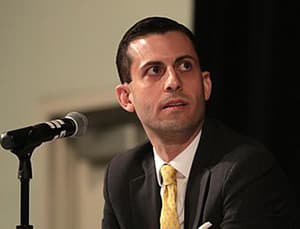Economist Alex Nowrasteh Dismisses "Brain Drain" as Flawed Argument for Immigration Restrictions

Alex Nowrasteh, Vice President of Economic and Social Policy at the Cato Institute, recently challenged the "brain drain" theory, often cited by those advocating for stricter immigration policies. In a social media post on October 21, 2025, Nowrasteh critically remarked, "> The nativists are sending their best. https://t.co/SUb1Xfpm4p," directing readers to his detailed analysis titled "The ‘Brain Drain’ Is a Bad Argument for Closed Borders." His work posits that arguments linking skilled emigration to economic detriment in developing nations are largely unfounded.
Nowrasteh, a prominent advocate for open immigration, argues that individuals often achieve greater productivity and economic contribution when they move to countries with more robust economies. He asserts that restricting such movement based on the "brain drain" premise ultimately hinders global economic growth and individual prosperity. The economist underscores that the well-being and economic potential of people should take precedence over static geographical considerations.
His analysis highlights several benefits of skilled emigration, including significant remittances sent by migrants to their home countries, which provide crucial financial support. Nowrasteh also points to "brain circulation," where returning migrants or those maintaining ties with their home countries introduce new skills, technologies, and entrepreneurial ventures. He cites the growth of India's IT sector as an example, suggesting it was bolstered by the experiences and capital of Indian emigrants.
Nowrasteh directly refutes the idea that preventing skilled workers from leaving their home countries would accelerate local economic development. He illustrates this by examining Haiti, demonstrating that even under highly optimistic assumptions of increased growth due to emigration restrictions, it would take decades for the average Haitian's standard of living to reach what could be achieved almost immediately through migration. This perspective aligns with broader economic arguments suggesting that open borders could significantly boost global GDP, as noted by economists like Bryan Caplan, who frequently references Nowrasteh's work.